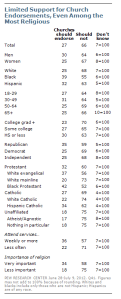

A chapter in technology history comes to a close today, when India’s state-owned telecom company, Bharat Sanchar Nigam Limited, will send its last telegram after 163 years.
The once-fundamental service in India has become unprofitable in recent years due to the rapidly changing means of other communication. The Christian Science Monitor reported that “at their peak in 1985, 60 million telegrams were being sent and received a year in India from 45,000 offices.” Today, the industry claims just 75 offices and 998 employees in all of India. (It’s worth noting that at least one private telegram company says it will still operate in the country.)
BSNL is following the lead of Western Union, which ended its telegram services in the United States seven years ago. The change also mirrors the global struggle of postal services in a world of increasingly paperless communication. When the U.S. Postal Service announced its decision this year to halt Saturday mail delivery, 54% of Americans said they approved of the decision.
More than half (56%) of Indians own a cell phone, according to a 2012 Pew Research Center survey of 21 nations. Of those who own a cell phone, 100% make calls, 42% send text messages and just 9% use the internet on their phone.
As some parts of India are becoming a hub for technological development, the decision to stop telegram services is a logical one. But the country has also been comparatively slow to take up other forms of communication, like social media—and for good reason. Lack of technology infrastructure, among other things, has made internet access a rarity in the country.
In the same Pew survey , India ranked near the bottom in use of social networking sites, along with its neighbor, Pakistan. Just 6% of respondents in India said they use social networking sites. An overwhelming 89% said they do not use the internet at all. Notably, a majority of Indians who use the internet are using social networking sites.
Just 13% of Indians use the internet, according to International Telecommunication Union. That figure puts the country behind other emerging economies, like Brazil (50%), Russia (53%), China (42%) and South Africa (41%), according to 2012 data. Comparatively, 36% of adults worldwide use the internet. As of December 2012, 65% of American adults reported having a high-speed broadband connection in their home, according to Pew data.